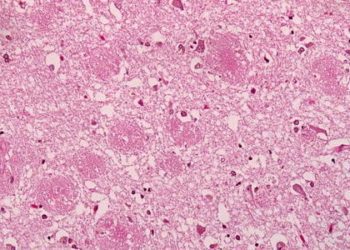PET/MR may be as good as PET/CT for cancer staging, reduces radiation
1. The combination of positron-emission tomography (PET) and magnetic resonance imaging (PET/MR) was shown to be equivalent to the combination of PET and computed tomography (PET/CT) for whole-body cancer staging and restaging.
2. PET/MR may be more sensitive for distant metastases than PET/CT while being more susceptible to imaging artifacts and identifying fewer incidental findings.
Evidence Level: 2 (Good)
Study Rundown: Cancer is one of the leading causes of death worldwide, and many treatment decisions depend, in part, on accurate tumor staging. Multiple different cancer staging systems exist, but all incorporate information about local and distant tumor spread into their assessment of disease burden and patient prognosis. PET/CT is the current standard of care for staging in many different cancer types, and its widespread use is supported by extensive research. PET/MR is a new and promising alternative to PET/CT that does not involve ionizing radiation and can be used to generate both anatomic and functional imaging datasets. However, data on its value in cancer imaging have been conflicting, and it has not been adopted in most centers. In the current study, investigators compared PET/CT and PET/MR with regard to multiple performance variables and found a very high degree of agreement between the two methods with regard to the ability to identify cancerous lesions, as well as radiologists’ overall confidence in their diagnosis. PET/MR seemed to be more sensitive than PET/CT for the detection of distant metastatic cancer but also more prone to imaging artifacts that could potentially obscure important findings. The study’s primary limitation was sample size; further work with larger patient populations is necessary before PET/MR can confidently supplement or replace PET/CT on a large scale.
Click to read the study in Radiology
Relevant Reading: Simultaneous PET-MRI: a new approach for functional and morphological imaging
In-Depth [prospective cohort]: In this study, 106 consecutive patients (60 male, 46 female; median age 68 years) with a history of malignancy underwent trimodality PET/CT/MR for the purposes of staging (n=20) or restaging (n=86). Standard PET/CT protocol was utilized, and three rapid acquisition sequences were included in the PET/MR protocol, yielding comparable scan times for both imaging methods. All generated scans were blinded and read in a random order by physicians dual-certified in diagnostic radiology and nuclear medicine. Imaging studies without any evidence of tumor were discarded and not included for further evaluation. Lesion evaluation was conducted according to RECIST criteria. Multiple primary, locally metastatic, and distant metastatic lesions from each patient were graded according to lesion conspicuity, the degree of imaging artifact, and overall diagnostic confidence. Incidental findings were also evaluated in consensus.
Among a total of 183 malignant lesions in 75 patients, interreader agreement was very high for all evaluated parameters and lesions types (primary versus metastatic) with both PET/CT and PET/MR. Diagnostic confidence was higher for PET/MR than PET/CT for primary lesions (p = 0.02), lymph node metastases (p = 0.005), and distant metastases (p < 0.001). PET/CT was able to identify a significantly greater number of incidental, non-malignant lesions (p = 0.039), particularly within the lung (p < 0.001). PET/MR was consistently more prone to image artifacts (p = 0.029), though they did not obscure diagnosis in any of the study cases.
More from this author: Mammography linked to improved breast cancer outcomes among women 75 and older
Image: PD
©2012-2014 2minutemedicine.com. All rights reserved. No works may be reproduced without expressed written consent from 2minutemedicine.com. Disclaimer: We present factual information directly from peer reviewed medical journals. No post should be construed as medical advice and is not intended as such by the authors, editors, staff or by 2minutemedicine.com. PLEASE SEE A HEALTHCARE PROVIDER IN YOUR AREA IF YOU SEEK MEDICAL ADVICE OF ANY SORT.









